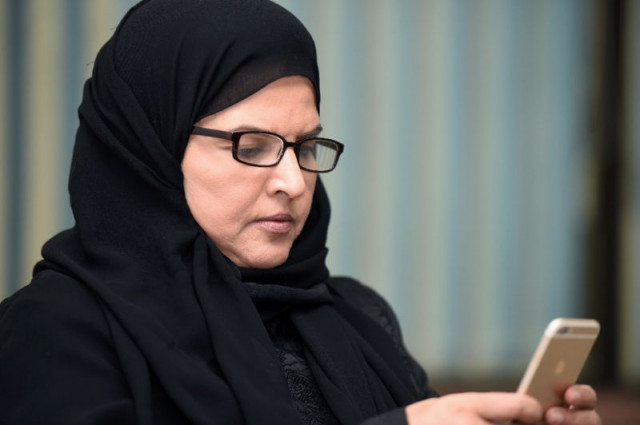Saudis detain women's advocates ahead of driving ban lift: HRW
Saudi women rights activists Nafjan and Hathloul participated in a campaign against driving ban

PHOTO AFP
While the reasons behind the arrests are not clear, activists told HRW that in September 2017, "the royal court had called the country's prominent activists ... and warned them not to speak to the media."
"The calls were made the same day the authorities announced that they would lift the driving ban on women," HRW said.
The detainees rounded up since May 15 include Loujain al-Hathloul, Aziza al-Yousef and Eman al-Nafjan, women who have long opposed the driving ban — to be lifted June 24 — as well as the kingdom's enduring guardianship laws.
Women to start driving in Saudi Arabia from June 24
Saudi Arabia's guardianship system require women to obtain permission from their fathers, brothers, husbands or even sons for a host of life decisions.
"Crown Prince Mohammed bin Salman's 'reform campaign' has been a frenzy of fear for genuine Saudi reformers who dare to advocate publicly for human rights or women's empowerment," said Sarah Leah Whitson, Middle East director at the watchdog.
"It appears the only 'crime' these activists committed was wanting women to drive before Mohammed bin Salman did," she said, referring to the powerful crown prince.
Activists Nafjan and Hathloul in 2016 signed a petition to abolish Saudi Arabia's male guardianship system, according to HRW.
They also participated in a campaign against the driving ban, before a royal decree announced it would be lifted.
Female empowerment: Women in Saudi Arabia teach each other how to drive for free
Hathloul was previously arrested at age 25 when she drove from the neighbouring United Arab Emirates to the Saudi land border in November 2014, HRW said. She was held in juvenile detention for 73 days.
The detainees also include a semi-retired lawyer who has stepped in to represent Saudi human rights advocates in recent years, according to activists.
Crown Prince Mohammed bin Salman, 32, is seen as the force behind the lifting of Saudi Arabia's longstanding driving ban on women, part of a series of reforms being pushed by the powerful royal in the conservative kingdom.
The decision to allow women to drive could give them the much-needed mobility to join the workforce.
Saudi women now no longer need male permission to start a business.
But Saudi activists say social change will only be cosmetic without dismantling the kingdom's guardianship system.



















COMMENTS
Comments are moderated and generally will be posted if they are on-topic and not abusive.
For more information, please see our Comments FAQ